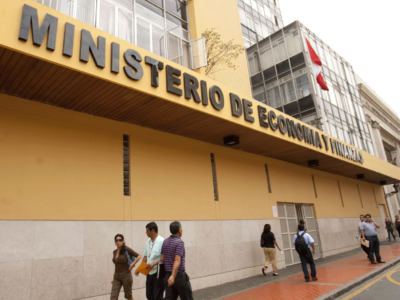
Differences between Reversion and Revocation of a Donation in Peruvian Civil Law
In Peruvian civil law, a donation is an act of liberality that may be subject to various legal provisions that allow for its modification or termination. Two of these provisions are revocation and reversion of a donation. Although often confused, these two provisions present significant differences in their legal nature and the conditions under which they can be invoked. This article briefly analyzes these differences, drawing on case law and the Peruvian Civil Code.
In Case No. 246-1998-La Libertad, a case was resolved where the donor had attempted to revoke a donation through a private document of advance of legitimate portion. The ruling indicated that this act lacked legal validity, as no cause of misconduct by the donee was indicated that would justify the revocation. Furthermore, a subsequent notarial letter did not remedy this omission, since the reason invoked was not specifically contemplated in the law, and the notarial letter did not have the same solemn form required for the donation of real estate.
Revocation of the Donation:
The revocation of the donation is regulated in articles 1637 to 1643 of the Civil Code. This provision allows the donor to unilaterally terminate the donation contract for reasons of unworthiness to inherit or disinheritance. According to Cassation No. 2202-2021, the revocation must be based exclusively on these grounds; it is not valid if it is based on other legal concepts such as nullity, rescission, or resolution.
Limitations: Revocation can only be requested by the donor during his lifetime and cannot be inherited by successors, according to article 1638 of the Civil Code.
Reversion of the Donation:
The reversion of the donation is regulated in article 1631 of the Civil Code. Unlike revocation, reversion allows the donor to freely establish conditions or limitations for the donee as a prerequisite for the gift to revert to the donor’s estate in the event of noncompliance by the donee.
Conditions and Formalities: The reversion agreement must be expressly agreed upon in the donation contract.
Likewise, in Resolution No. 2741-2023-SUNARP-TR of June 23, 2023, the Court did not allow the registration of the reversion agreement because this agreement has the legal nature of a resolutory condition, meaning that the effectiveness of the transfer of the donated asset is subject to the occurrence of an event, which in principle can be any event stipulated by the parties, reverting the asset to the donor.
The reversion clause must be expressly agreed upon; therefore, the assumption indicated in Article 1631 is only applicable if there are express reversion clauses in the donation contract.
Substantial Differences:
In light of the above, it is necessary to emphasize a substantial difference regarding revocation. While Article 1637 of the Civil Code subjects the revocation of a donation to the invocation of one of the grounds for disinheritance or unworthiness, Article 1631 grants the parties the freedom to, when establishing the donation reversion clause, subject it to a future and uncertain event, which must be previously defined. That is, the legal grounds must be identified.
n conclusion, revocation and reversion of donations are distinct mechanisms in Peruvian civil law, with clear differences in their grounds and procedures. While revocation is a restricted power of the donor, based on specific grounds of unworthiness and disinheritance, reversion allows greater flexibility in establishing conditions. The correct application of these legal concepts is essential to ensure the validity and effectiveness of donations.
As always, at Thorne, Echeandía & Lema Abogados, we welcome any questions, comments, or additional clarifications you may have regarding the legal and customs impact of the information contained in this newsletter. If so, please do not hesitate to contact our real estate team.
Segundo A. Campos Santillán




